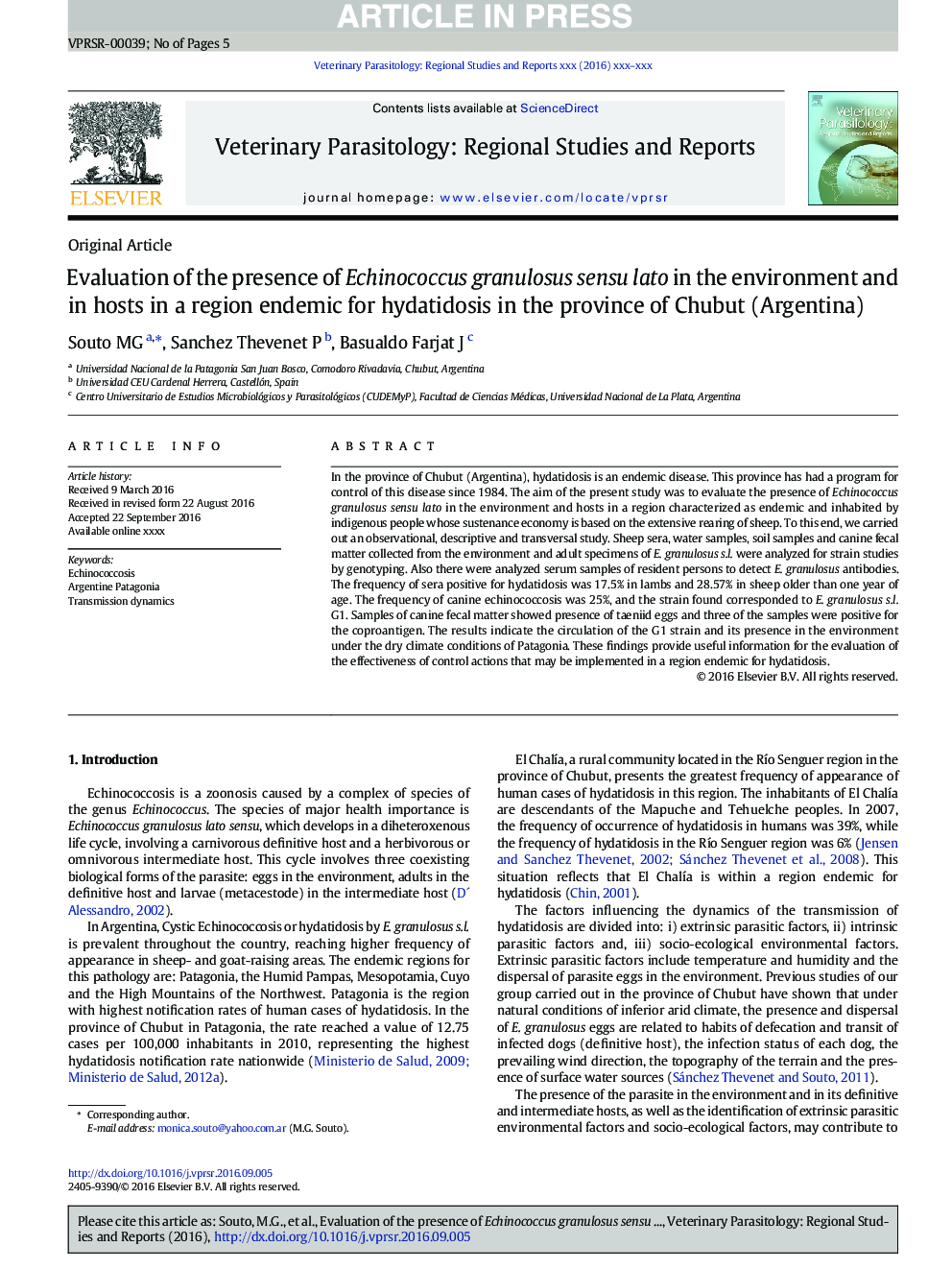| Article ID | Journal | Published Year | Pages | File Type |
|---|---|---|---|---|
| 5546080 | Veterinary Parasitology: Regional Studies and Reports | 2016 | 5 Pages |
Abstract
In the province of Chubut (Argentina), hydatidosis is an endemic disease. This province has had a program for control of this disease since 1984. The aim of the present study was to evaluate the presence of Echinococcus granulosus sensu lato in the environment and hosts in a region characterized as endemic and inhabited by indigenous people whose sustenance economy is based on the extensive rearing of sheep. To this end, we carried out an observational, descriptive and transversal study. Sheep sera, water samples, soil samples and canine fecal matter collected from the environment and adult specimens of E. granulosus s.l. were analyzed for strain studies by genotyping. Also there were analyzed serum samples of resident persons to detect E. granulosus antibodies. The frequency of sera positive for hydatidosis was 17.5% in lambs and 28.57% in sheep older than one year of age. The frequency of canine echinococcosis was 25%, and the strain found corresponded to E. granulosus s.l. G1. Samples of canine fecal matter showed presence of taeniid eggs and three of the samples were positive for the coproantigen. The results indicate the circulation of the G1 strain and its presence in the environment under the dry climate conditions of Patagonia. These findings provide useful information for the evaluation of the effectiveness of control actions that may be implemented in a region endemic for hydatidosis.
Related Topics
Health Sciences
Veterinary Science and Veterinary Medicine
Veterinary Science
Authors
Souto MG, Sanchez Thevenet P, Basualdo Farjat J,
